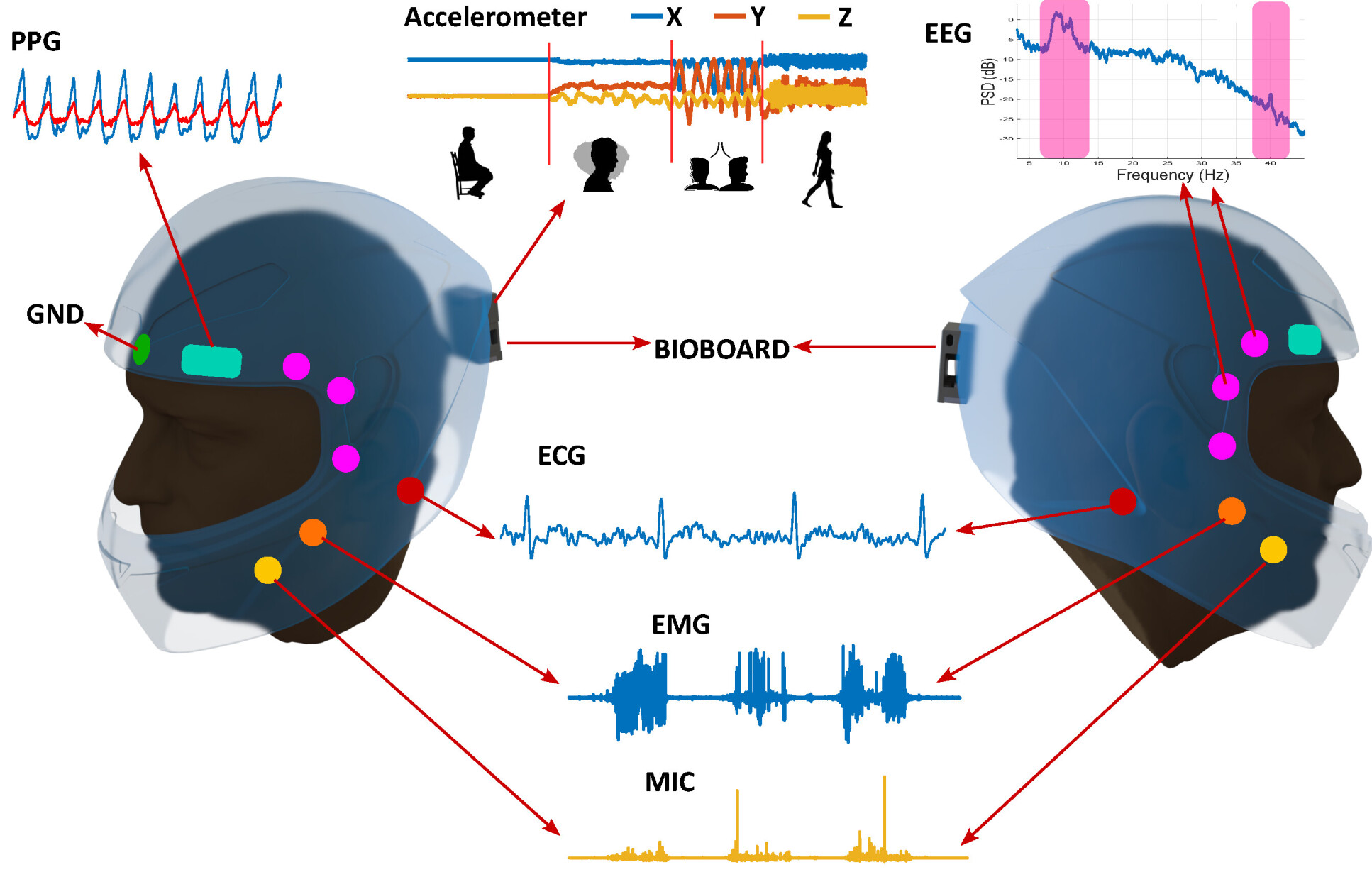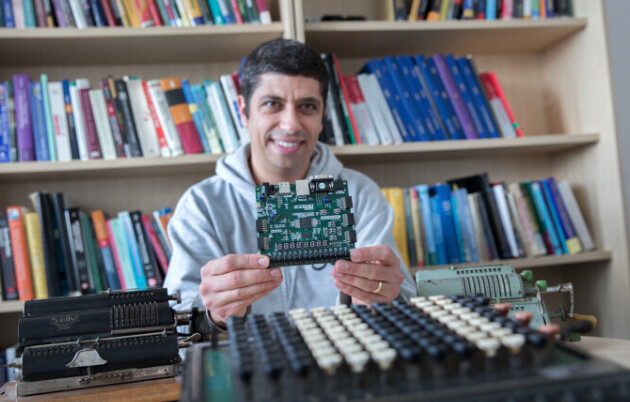Partnerships, papers and planets - the latest research from EEE
by Jane Horrell

Some recent news stories from the Department of Electrical and Electronic Engineering you may have missed.
Interplanetary award
Our congratulations to Professor Tom Pike and the UK NASA InSight team who were announced winners of a Sir Arthur Clarke Award last month. The awards are organised by the British Interplanetary Society on behalf of The Arthur C. Clarke Foundation, to recognise and reward individuals and teams that have made notable achievements in space activities in the UK.
NASA’s Mars InSight mission put the first lander on another planet dedicated to search for quakes to reveal the interior of Mars. The UK InSight team provided the silicon micromachined seismometers to the mission back in 2015, with sensors from the Department of Electrical and Electronic Engineering at Imperial and electronics from the Department of Physics at Oxford.
By the time InSight landed in November 2018, the UK team had expanded to include seismologists from Imperial, Bristol and Oxford, but it took many months before they were able to see signals that might be marsquakes. As more quakes were detected it became clear that meteorite impacts play an important role in providing seismic energy. Analysis of these quakes has helped us to look for the first time deep inside another planet, and the Sir Arthur Clarke prize recognises the efforts of all the UK team that has helped make this possible.
 Professor Pike, leader of the UK effort, was joined by Dr Constantinos Charalambous, also from Imperial and Dr Anna Horleston from Bristol to receive the prize.
Professor Pike, leader of the UK effort, was joined by Dr Constantinos Charalambous, also from Imperial and Dr Anna Horleston from Bristol to receive the prize.
Tom said “I am thrilled to receive this award for the whole UK team. It is incredible to think of the sensors that came out of the cleanrooms at Imperial detecting Marsquakes from the other side of the planet. What we’ve seen is not only helping us piece together the deep history of Mars, but we’re now re-examining how meteorite impacts are shaping our solar system. We will build on this - our next destination is now the Moon in 2026!"
Smart helmet
A paper authored by Imperial EEE and Brain Sciences researchers has been awarded the 2023 IEEE Engineering in Medicine and Biology Society Prize Paper Award.
The IEEE Engineering and Biology Society (EMBS) has several journals under its remit, and the paper by the team was published in the IEEE Journal of Translational Engineering in Health and Medicine, in 2016.
The paper outlines a "Smart Helmet" which can record neural function and vital signs at multiple points of the head during activities like cycling, motorcycling, horse riding, patient monitoring and military engagement.

The paper ‘Smart Helmet: Wearable Multichannel ECG and EEG’ was authored by PhD graduates in Electrical and Electronic Engineering Wilhelm von Rosenberg, Theerasak Chanwimalueang, Valentin Goverdovsky and David Looney, under the supervision of Professor David Sharp from the Department of Brain Sciences and Professor Danilo Mandic from the Department of Electrical and Electronic Engineering.
Professor Mandic said: “This further promotes our own brand of creative thinking and problem solving. I would like to congratulate our creative and hard-working research students, without whom this achievement would have been impossible.”
Processing partnership
Imperial is working with the semiconductor company AMD to optimise computer processors for machine learning.
The rise of machine learning and its much lauded recent applications such as ChatGPT have been driven largely by the increased processing power of hardware available to developers today.
However, with machine learning still in its ascendancy, processors in data centres and personal devices have not traditionally been designed with machine learning in mind. A new generation of hardware optimised for machine learning could further unlock the technology’s potential.

Article text (excluding photos or graphics) © Imperial College London.
Photos and graphics subject to third party copyright used with permission or © Imperial College London.
Reporter
Jane Horrell
Department of Electrical and Electronic Engineering